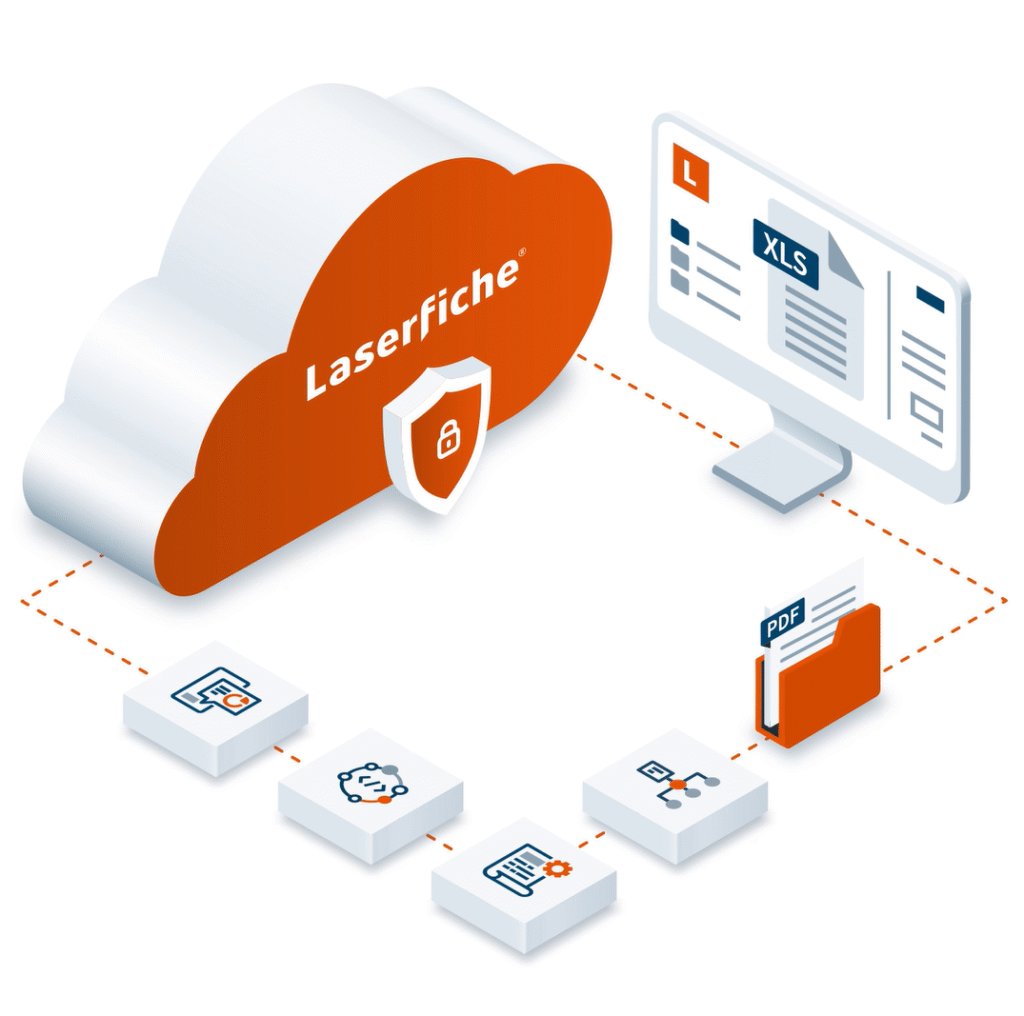In today’s fast-paced business environment, organizations are continuously seeking innovative solutions to enhance operational efficiency, improve customer engagement, and drive growth. Microsoft Dynamics 365 has emerged as a leading integrated platform that combines customer relationship management (CRM) and enterprise resource planning (ERP) into a single solution. This powerful suite of applications allows organizations to streamline processes, manage resources effectively, and maintain a competitive edge. By leveraging the capabilities of Dynamics 365, businesses can break down silos, enhance collaboration across departments, and make data-driven decisions that fuel success. This article explores ten key features of Microsoft Dynamics 365 that unlock its power for seamless integration, highlighting how organizations can harness this platform to transform their operations and drive sustainable growth.
Modular Architecture for Flexibility
One of the standout features of Microsoft Dynamics 365 is its modular architecture, which provides organizations with the flexibility to tailor their systems to meet specific business needs. With a diverse array of applications available, including Sales, Customer Service, Finance, Supply Chain Management, and more, companies can start with the modules that are most relevant to their immediate requirements. This approach allows businesses to gradually implement additional modules as they grow or as market demands shift. For instance, a small manufacturing firm may initially deploy the Supply Chain Management module to enhance inventory control and logistics, later adding modules for Finance and Customer Service as their operations expand. This scalability not only minimizes initial investments but also ensures that integration remains seamless as new functionalities are added. Additionally, the ease of integration among the modules means that companies can develop customized workflows and processes, ensuring that every department operates efficiently and cohesively.
Cloud-Based Platform for Accessibility
The cloud-based nature of Microsoft Dynamics 365 significantly enhances its usability and accessibility, allowing organizations to access their data anytime and anywhere. This is particularly advantageous in today’s global business landscape, where remote work and distributed teams are increasingly common. With Dynamics 365, employees can securely log in from any device—be it a laptop, tablet, or smartphone—to access real-time information and collaborate with colleagues. This capability is crucial for facilitating agile decision-making and responsiveness to market changes. Furthermore, because Dynamics 365 is hosted in the cloud, businesses benefit from automatic updates and new features without the need for extensive IT intervention. This not only reduces operational overhead but also ensures that organizations are always equipped with the latest technology to support their goals. As a result, companies can focus on strategic initiatives rather than managing their IT infrastructure, driving overall productivity and innovation.
Unified Data Model for Consistency
A unified data model is at the heart of Microsoft Dynamics 365, ensuring that all applications share a consistent and accurate set of data. This single source of truth eliminates data silos, which can hinder collaboration and lead to discrepancies in reporting. By integrating data across departments, organizations can achieve a holistic view of their operations and customer interactions. For example, the sales team can easily access customer purchase histories maintained by the finance department, allowing them to tailor their approaches based on comprehensive insights. This level of data consistency enhances collaboration among teams, as everyone operates from the same information, fostering a culture of transparency and accountability. Moreover, the unified data model supports advanced analytics, enabling organizations to leverage business intelligence tools to extract meaningful insights that inform strategic decisions. By investing in a data-driven culture, businesses can enhance their agility and responsiveness, leading to improved customer experiences and competitive advantage.
Powerful Integration with Microsoft 365
Microsoft Dynamics 365’s seamless integration with Microsoft 365 applications such as Outlook, Teams, and SharePoint significantly enhances productivity and collaboration. Employees can manage emails, schedule meetings, and share documents without leaving the Dynamics 365 interface, thereby streamlining their workflows. For instance, a sales representative can track customer interactions and schedule follow-up meetings directly within Dynamics 365, ensuring that all relevant data is captured in one place. The integration with Microsoft Teams facilitates real-time communication, allowing team members to collaborate on projects, share insights, and discuss strategies in a central hub. This connectivity fosters a more collaborative workplace where cross-departmental communication is encouraged, ultimately driving better business outcomes. Furthermore, the ability to easily share insights and updates through Teams enhances employee engagement, empowering teams to work together effectively and align their efforts with organizational goals.
Advanced Analytics and Business Intelligence
The integration of advanced analytics and business intelligence tools within Microsoft Dynamics 365 is a game changer for organizations seeking to make data-driven decisions. With built-in Power BI capabilities, users can create interactive dashboards that visualize key performance indicators (KPIs) and trends across various functions. This level of insight allows businesses to track performance, identify areas for improvement, and forecast future outcomes with greater accuracy. For example, a retail business can monitor sales performance across different regions in real time, enabling management to make informed decisions about inventory allocation and marketing strategies. Additionally, the predictive analytics features within Dynamics 365 allow organizations to anticipate customer behaviours, optimize resource allocation, and enhance operational efficiencies. By leveraging these analytics capabilities, businesses can not only respond proactively to changing market dynamics but also drive innovation and continuous improvement across their operations.
Customizable Workflows and Automation
Customizable workflows and automation capabilities are critical components of Microsoft Dynamics 365 that drive operational efficiency. Organizations can design workflows tailored to their specific processes, ensuring consistency in task execution and reducing manual errors. For instance, a company can automate its lead management process, allowing leads to be automatically assigned to sales representatives based on predefined criteria such as geography or product interest. This not only speeds up response times but also enhances the customer experience, as potential clients receive timely communication. Furthermore, automation can streamline various business processes, such as order processing, invoicing, and customer follow-ups. By automating repetitive tasks, organizations can free up employees to focus on strategic initiatives that require creativity and critical thinking. This leads to improved employee satisfaction and productivity, as team members can dedicate their time and energy to more impactful work, ultimately driving better business outcomes.
Enhanced Customer Engagement
The customer relationship management capabilities of Microsoft Dynamics 365 are integral to enhancing customer engagement. By providing tools to manage customer interactions and analyze behaviour, organizations can gain a comprehensive understanding of their clients, allowing for more personalized and effective communication. For instance, sales and marketing teams can track customer preferences, purchase history, and feedback, enabling them to tailor their outreach and deliver relevant content and solutions. This level of personalization not only increases the likelihood of successful conversions but also fosters long-term relationships and loyalty. Furthermore, the integrated customer service module allows organizations to respond to inquiries quickly and efficiently, ensuring a seamless experience for customers. The ability to provide timely support and address concerns effectively can significantly enhance customer satisfaction and retention rates. By prioritizing customer engagement through Dynamics 365, businesses can build stronger connections with their audience, driving repeat business and positive word-of-mouth referrals.
Seamless Integration with Third-Party Applications
Microsoft Dynamics 365’s ability to integrate seamlessly with a wide range of third-party applications enhances its overall functionality and usability. Organizations can connect their existing software solutions—such as specialized industry applications, financial management tools, or marketing automation platforms—to Dynamics 365, creating a cohesive ecosystem that maximizes the value of their technology investments. This integration ensures that data flows freely between systems, enhancing collaboration and improving data accuracy. For instance, a retail business can integrate its e-commerce platform with Dynamics 365 to synchronize inventory levels in real time, preventing stockouts and optimizing sales opportunities. This seamless connectivity allows organizations to leverage their current technology investments while enhancing overall system performance and user experience. Additionally, the open architecture of Dynamics 365 enables businesses to customize their integrations, ensuring that they can adapt their systems to evolving business needs and market demands.
Mobile Accessibility for On-the-Go Management
In an increasingly mobile world, the availability of a robust mobile application for Microsoft Dynamics 365 is essential for modern organizations. The mobile app enables users to access critical business data and manage operations while on the go, providing flexibility for sales teams, field service professionals, and executives. Employees can check customer information, update records, and respond to inquiries directly from their mobile devices, ensuring they are always connected to their business. The intuitive design of the mobile interface enhances usability, allowing users to quickly find information and take action without lengthy training. This mobile accessibility empowers teams to be more responsive and effective, contributing to improved customer service and satisfaction. For example, a field service technician can access customer records and service history before arriving at a site, enabling them to prepare for the visit and provide more effective solutions. By facilitating mobile access to essential tools and information, organizations can improve employee productivity and customer experiences alike.
Strong Security and Compliance Features
Data security and compliance are paramount concerns for organizations in today’s digital landscape, and Microsoft Dynamics 365 addresses these issues with robust security features. The platform employs role-based access controls, ensuring that sensitive information is accessible only to authorized users. This granular control over data access is crucial for protecting confidential information and ensuring compliance with industry regulations. Additionally, Dynamics 365 includes data encryption, multi-factor authentication, and compliance certifications to meet various regulatory requirements, such as GDPR, HIPAA, and others. The focus on security not only protects organizational data but also builds trust with customers, who increasingly expect companies to prioritize their privacy and data security. Furthermore, regular updates and security patches are automatically applied through the cloud, ensuring that the system remains secure against emerging threats. This proactive approach to security allows organizations to focus on growth and innovation without the constant worry of potential data breaches.
Summary
Microsoft Dynamics 365 offers organizations a comprehensive solution for achieving seamless integration across their operations. With its modular architecture, cloud-based accessibility, unified data model, and powerful analytics capabilities, businesses can enhance collaboration, improve decision-making, and drive efficiency. The platform’s customizable workflows, advanced customer engagement tools, and strong security features further empower organizations to transform their operations and achieve sustainable growth. As companies navigate the complexities of modern business, leveraging the full potential of Microsoft Dynamics 365 will be instrumental in unlocking new opportunities and achieving lasting success.









